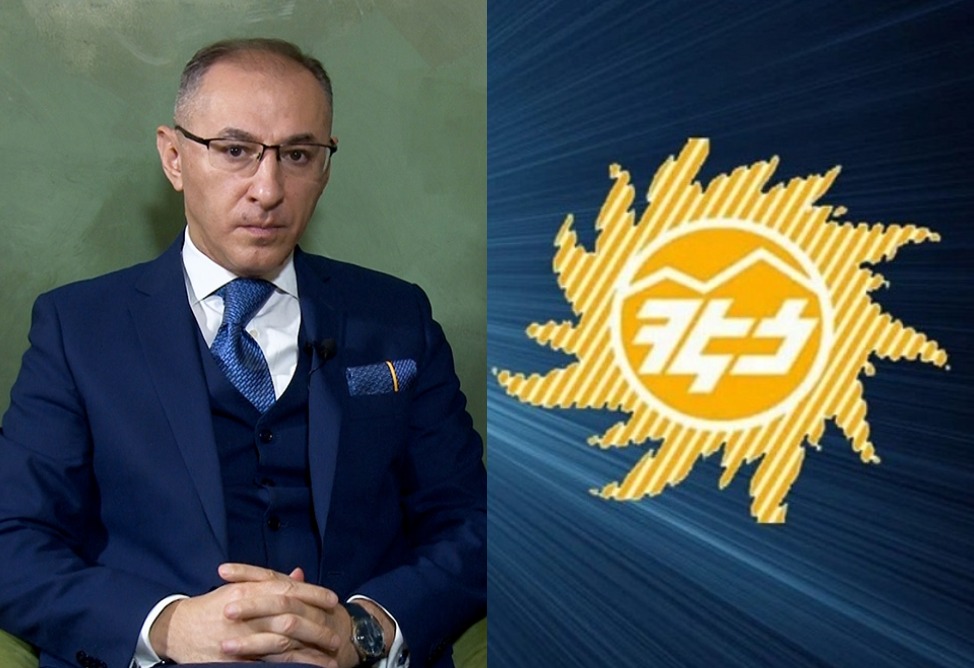Nationalization of Electric Networks of Armenia will break the “backbone” of the economy and scare away investors – former Minister of Finance (EXCLUSIVE)

YEREVAN, June 26. /ARKA/. The authorities' plan to nationalize the national power distributing company Electric Networks of Armenia (ENA), announced by Prime Minister Nikol Pashinyan, will break the backbone of the country's economy and scare away investors, both domestic and foreign, former Finance Minister Vardan Aramyan said in an exclusive interview with ARKA news agency on Thursday.
Earlier, Pashinyan announced that the plan to nationalize Armenian Electric Networks CJSC was ready and that the practical stage of its implementation would begin very soon. The prime minister wrote on social media that the processes would be carried out in accordance with the legislation of the Republic of Armenia.
According to the former finance minister, the issue of the so-called “nationalization” of ENA should be considered in two aspects – economic and legal.
“The legal consequences of the planned nationalization are quite serious. Since 1994, Armenia has had a law on the protection of foreign investments, in particular, Article 8 of which provides guarantees to foreign investors,” Aramyan noted.
He recalled that in 2015-2017, Tashir Capital acquired 70% of ENA shares, while 30% were acquired by the Cypriot company LIORMAND HOLDING LIMITED. The Cypriot company still owns 30% of the shares.
“If the transaction took place between two foreign investors, then two legal norms apply to it: the law ”On the Protection of Foreign Investments“ (Article 8) and the Agreement ”Between the Government of the Republic of Armenia and the Government of the Russian Federation on the Promotion and Mutual Protection of Investments." The law clearly states that foreign investments in Armenia are not subject to nationalization. This law also contains other terms – seizure and confiscation," Aramyan said.
According to him, confiscation is also prohibited, state bodies cannot confiscate foreign investments, and seizure itself can take place in exceptional cases, in accordance with the procedure established by law in emergency situations, by court decision, and entirely in the form of compensation. The terms “nationalization,” “confiscation,” and “expropriation” are regulated by law. In developing countries, where institutions protecting private property are weak, laws such as the Foreign Investment Protection Act are usually considered fundamental, and a country needs a similar law to attract foreign investment.
"Pashinyan's government must make a serious effort. I can't even imagine how they are going to justify their actions. They say that all this is enshrined in law. But, for example, what rule did ENA violate, what did it lead to, what damage was done to the public interest by these actions," the former finance minister emphasized.
Aramyan explained that, according to the law, in the event of nationalization, a foreign investor is reimbursed, i.e., compensated, for the value of “nationalized” property. He noted that Pashinyan and his government plan to pay this compensation not out of their own pockets, but at the expense of taxpayers, and it is necessary to understand how much this amount will be.
According to Aramyan's estimates, today the ENA has about 337 billion drams ($870 million) on its balance sheet with all its assets, and if compensation is to be paid, there will be a dispute over its price and the investments made.
The former head of the Ministry of Finance believes that with such decisions, the government is stimulating not an inflow but an outflow of foreign investment, and no matter how hard the authorities try to prove their case, the figures speak for themselves. For example, in 2024, foreign investment indicators were negative. There are also examples of a number of “non-transparent” deals – Kajaran, Amulsar, and now ENA.
"The fact is that stability and clear rules of the game are very important for foreign investors. There is no clear explanation for all this, only populist statements that everything should be national. If so, then close the economy, close the market, bring back the Soviet economy, and let's see how you develop. All this will lead to very bad consequences," Aramyan said.
The owner of Electric Networks of Armenia CJSC Russia-based billionaire Samvel Karapetyan is currently under arrest. As part of the criminal case, he has been charged with "public calls for the seizure of power." By a court decision, he was arrested for 2 months. Karapetyan himself does not admit his guilt. His lawyers have filed a motion to appeal the businessman's arrest and are also preparing a complaint to the ECHR against Armenia.
The reason for the detention of Samvel Karapetyan was the businessman's statement in connection with the conflict that arose between Prime Minister Nikol Pashinyan and the head of the Armenian Apostolic Church, Garegin II. In his address to the press, the businessman stated that he had always been on the side of the Armenian Church and the Armenian people, and if politicians do not succeed, then "we are ready to participate in all this in our own way."
Electrical Networks of Armenia CJSC is part of the Tashir Group of Companies, which is owned Samvel Karapetyan. It manages medium and low voltage distribution networks in Armenia, serving about 1 million subscribers.
Since 2016, Tashir Group has invested about $680 million in the modernization of the facility alone, and another $150-200 million was invested in the creation of new capacities. -0-


